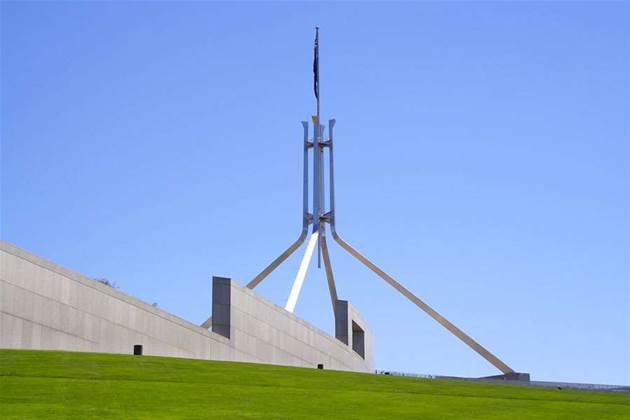Pitching to depose John Howard as Prime Minister of Australia in mid-2007, a determined Kevin Rudd made a key promise to the small business community.

“If elected as the next prime minister of Australia, I will start helping small business by looking in my own backyard - government procurement,” Rudd said.
Small businesses were offered a bigger share of the pie – but official statistics on whether the Rudd Government’s mandate was heard by agencies has been hard to come by.
Until now.
Analyst group Intermedium was contracted by the Government under a $60,000 commission to deliver a report on SME participation in Government IT deals in 2008-09, but upon its completion, the report was shelved and no further reports on the matter have been commissioned.
Today iTnews has obtained the report - the most authoritative picture of how IT industry SMEs have fared in Government business through the period from 2003 to 2008.
Intermedium found the overall value of the Government IT market peaked at $3.8 billion in 2006-07, an increase of $1.1 billion since the study commenced. But by 2007-08, the value of contracts reported declined by almost $700 million to just over $3 billion.
But these fluctuations have barely been felt in the small business market. The share of total contract value won by small businesses has remained between $700 million and $900 million since 2003-04 – ranging between 22 percent and 30 percent of total Government IT business over the five years to 2007-08.
Small businesses earned on average 25.5 percent of the total contract value in Canberra’s ICT market. (But the report only tracked deals where SMEs were the prime contractor - and thus understated cases where small businesses acted as subcontractors to larger prime contractors.)
That said, several broad trends and outcomes stood out.
As one might expect, larger agencies tended to favour large suppliers. The report found that smaller agencies tend to award a significant proportion (and often the majority) of their total contract value to SMEs, but larger agencies tended to award the majority of their total contract value to multinationals.
When comparing the 2003-04 figures to the 2007-08 figures, small and medium businesses earned more of the market share at Centrelink, modest growth at the Australian Tax Office (ATO), Immigration (DIAC), Resources, Energy and Tourism (DRET) and Customs, and strong growth at Health (DOHA), Innovation and Science (DIISR), Environment and Water (DEEWR) and Veterans’ Affairs (DVA). But less deals came to the small business market from Defense and Agriculture (DAFF).
"The agencies which typically contract more than $100 million per annum in total ICT contract value are responsible for the majority of contracts with foreign companies, and chief among these are Defense and Centrelink, which appear to have cyclical needs to procure from foreign specialist companies, driven by their business need in some cases to adopt emergent technologies as quickly as possible, irrespective of their source," the report stated.


.png&h=140&w=231&c=1&s=0)

_(20).jpg&h=140&w=231&c=1&s=0)
_(28).jpg&h=140&w=231&c=1&s=0)




_(26).jpg&w=100&c=1&s=0)
 iTnews Executive Retreat - Security Leaders Edition
iTnews Executive Retreat - Security Leaders Edition












_(1).jpg&h=140&w=231&c=1&s=0)



